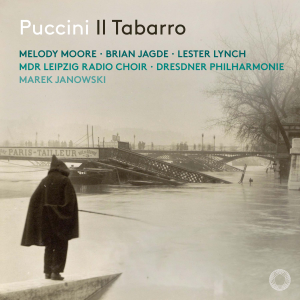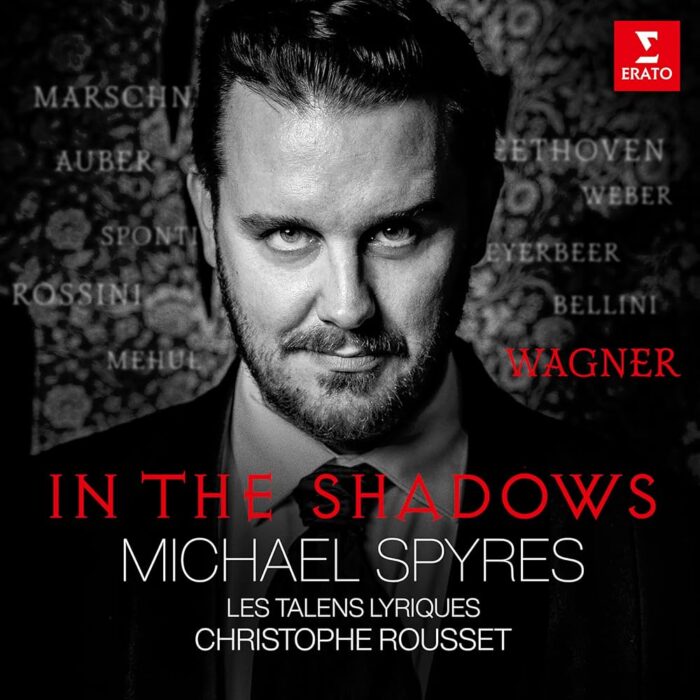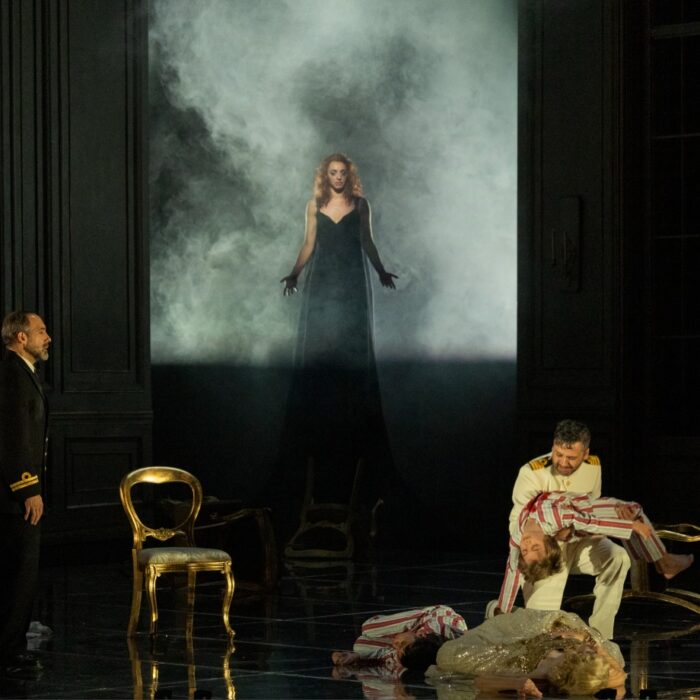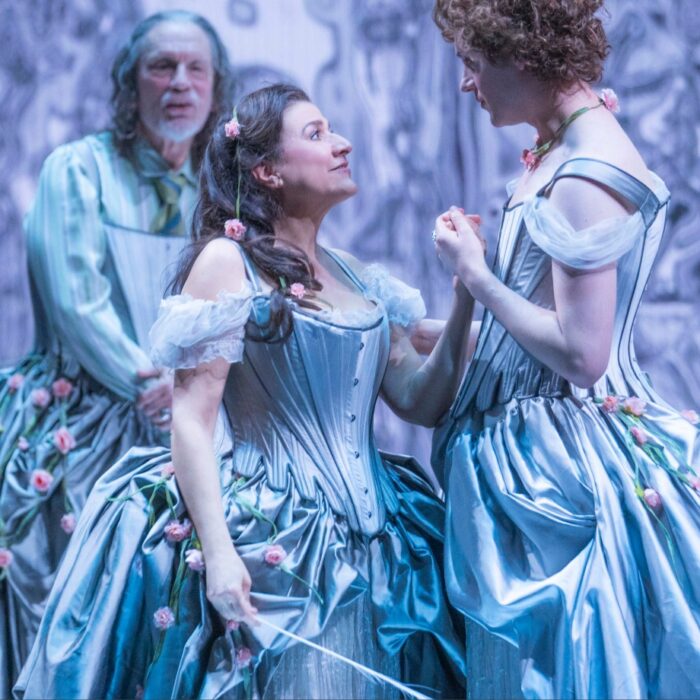
CD Review: Pentatone’s ‘Il Tabarro’
Brian Jagde Leads Solid Release of Puccini Opera
By Bob DieschburgA cynical depiction of low-class misery and pessimistic determinism in the vein of Zola, “Il Tabarro” may read as a departure from the sympathetic backdrop of Imperial Japan, the mining camps of the western United States, or Bohemian Paris in the 1830s. Yet its musical ingredients leave plenty of room for the elatedness of Puccinian melodies and despite the unusually sordid (and modernistic) touches of its harmonic palette, “Il Tabarro” provides for some of the lushest moments in the late verismo repertoire.
The new release, therefore, comes as a more than welcome revisitation of Puccini’s underdog whose last widely available recording dates back to 2008. As for every major addition to the discographic catalog, it also begs the question as to its relative merits which, in short, are very commendable.
However, the combined forces of Marek Janowski and his cast of all-American soloists also lacks the incisiveness or, for want of a better word, the grubbiness to infuse their production with the longevity which as coarse and sensuous a piece as Puccini’s “Tabarro” deserves.
A Verismo Latecomer
“Il Tabarro” comes as a belated complement to Pentatone’s May-release of “Cavalleria Rusticana” which was recorded during the same concert performance at Dresden’s Kulturpalast in March 2019 as Puccini’s one-acter. Marking the beginning and end of the verismo subgenre, this double bill works perfectly well and one is caught wondering why the label chose not to publish both works as a box-set – especially given the comparatively high retail prices for a single Super Audio CD.
For this recording, the audio quality is stunning throughout and while the relatively impartial setting of a concert performance does not come close to the emotional heat of staged drama, the musicality and high artistry of everyone involved become ever more clear. That is not to say that this recording is a perfect performance.
The American Trio
It has been noted elsewhere that of the three principals Brian Jagde probably has the most Italianate tone. I disagree to the extent that Lester Lynch has had a very distinguished career as a Verdian baritone and Michele may well count as the most Verdian part the mature Puccini ever wrote. Certainly, the voice shows some wear: its ring has diminished, the vibrato widened but its characteristic top notes are still there.
From a vocal perspective, Lester Lynch’s Michele seems older than we might wish for and he, unfortunately, dispenses with the idiomatic snarl of the baritonal tradition (note the unremarkably polite “sgualdrina” and “non mi sfuggi, canaglia!”) so characteristic of the Grand Guignol fashion. Nevertheless, his portrayal is very worthwhile if not the most memorable.
A Giorgetta below her abilities
Of the three protagonists, Melody Moore convinces the least. Her Santuzza in the corresponding performance of “Cavalleria” was an enchanting testament to a most lyrical approach which I find lacking in her singing of the complicated role of Giorgetta, the barge-owner’s wife. Naturally, the role comes with an entirely different set of technical demands and Moore, from the opening bars, seems to manifest some unease regarding the tessitura which often gravitates in the lower range of her voice before jumping above the secondo passaggio.
More precisely, I had the impression that she thickened her voice (as in the first duet with Luigi) to the occasional detriment of tonal balance. Suffice to say, in terms of sheer beauty, Moore remains below her capabilities as even the most casual comparison with her “American Song Album” will demonstrate.
To put it differently: Fans of the soprano will still have cherishable moments with the present recording, including a series of finely executed diminuendos. The operatic thrills, however, that come from an almost physical experience of the voice’s breadth are sorely missed and the same holds true for the full-body resonance of some authentic chest sounds.
Stentorian and hot-blooded
The above criticism does not apply to Brian Jagde. Surely, the Long Island-born tenor has established himself as a vocal risk-taker and despite his sometimes tendency to override his characters, the stentorian antics of his stevedore work rather well. There is some true excitement in Jagde’s narration of the dockworker’s plight (“Hai ben ragione”) and Luigi proves a relentlessly hot-blooded lover in both duets with Melody Moore.
In fact, the muscular style of his dark-hued tenor is perfectly appropriate for this latecomer of the veristic repertoire. What is more, Jagde never sacrifices the integrity of the vocal line and the congeniality of his interpretation lies in the musical commitment to his character, even while throwing in the customary choking sound at the opera’s grizzly climax. In “Tabarro,” he has more than mitigated the strong reservations I had against his Turiddu and is verging on his operatic best.
Polite verismo?
The recording’s biggest letdown and cause of its overly slow pace turns out to be the conducting of Marek Janowski which in itself cannot be faulted on technical grounds. The playing of the Dresdner Philharmonie is both articulate and glass clear. Yet it lacks an overarching vision to embrace the structural makeup and tonal atmosphere of the work.
I am therefore hesitant to interpret the seeming reticence of Janowski and his orchestra as anything else than a half-hearted attempt to infuse what is essentially a crude (and no matter how beautiful) score with a psychological depth inherited from the Maestro’s longstanding engagement with the Wagnerian opus.
In my personal experience, there has never been any reason to suspect the orchestral purpose of “Il Tabarro” to be anything else than the musical depiction of the eerie, gloomy, and grotesque which is perfectly realized from the very start, including its onomatopoetic soundscape of dusky Paris and the out-of-tune barrel organ.
Janowski’s approach may thus count as being unusually subtle, but the guilty pleasure of hearing a true verismo sound with its almost metallic ring and bright colors remains strangely unfulfilled. The opera buff will in this case look for the old Gardelli recording whose brusque aesthetics may seem of a bygone (and sorely missed) era.
Special mention should be made of the comprimarii and Roxana Constantinescu in particular. The bitter-sweet chatter of her Frugola is a noteworthy addition to the achievements of an overall very good release.


